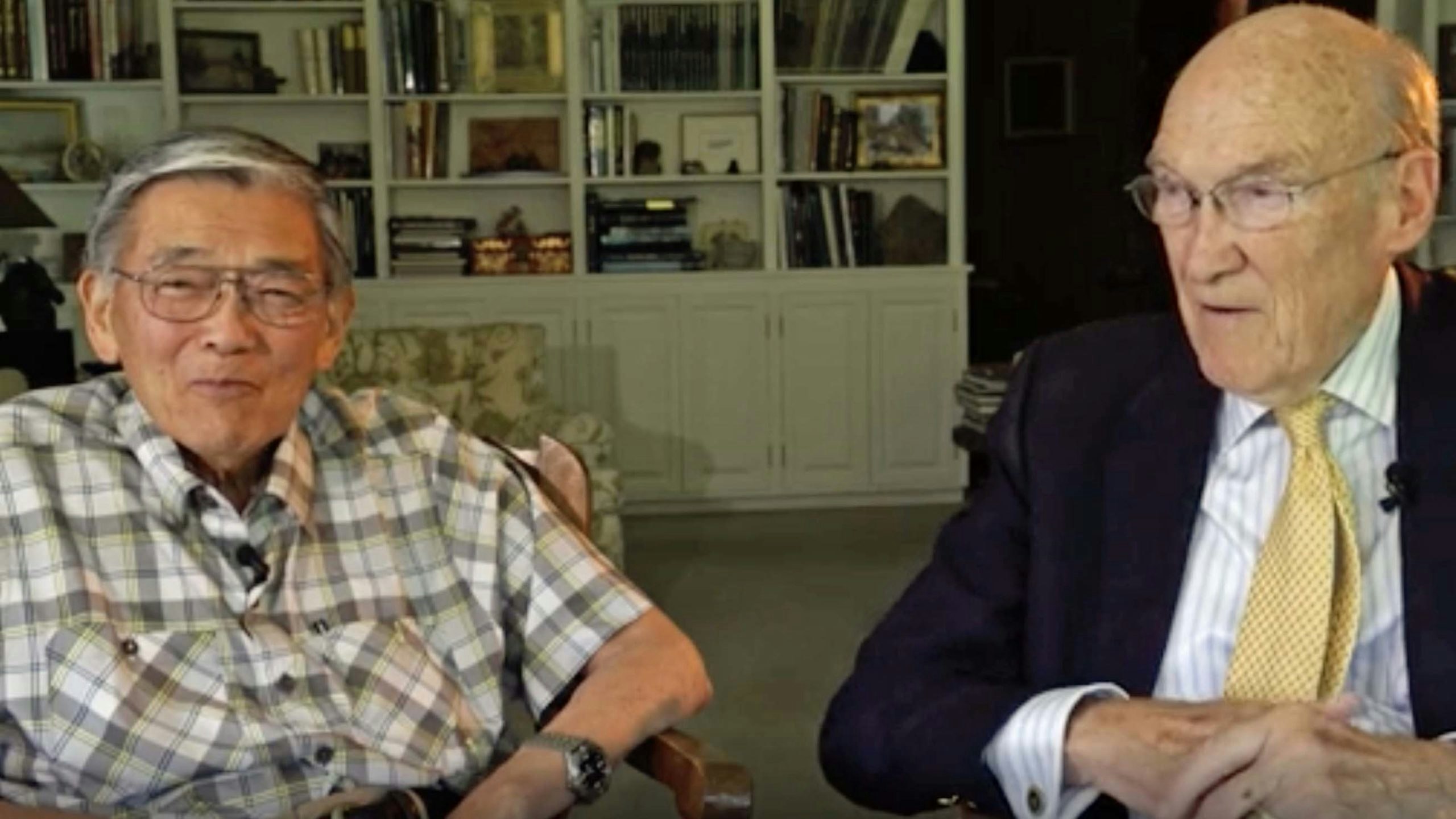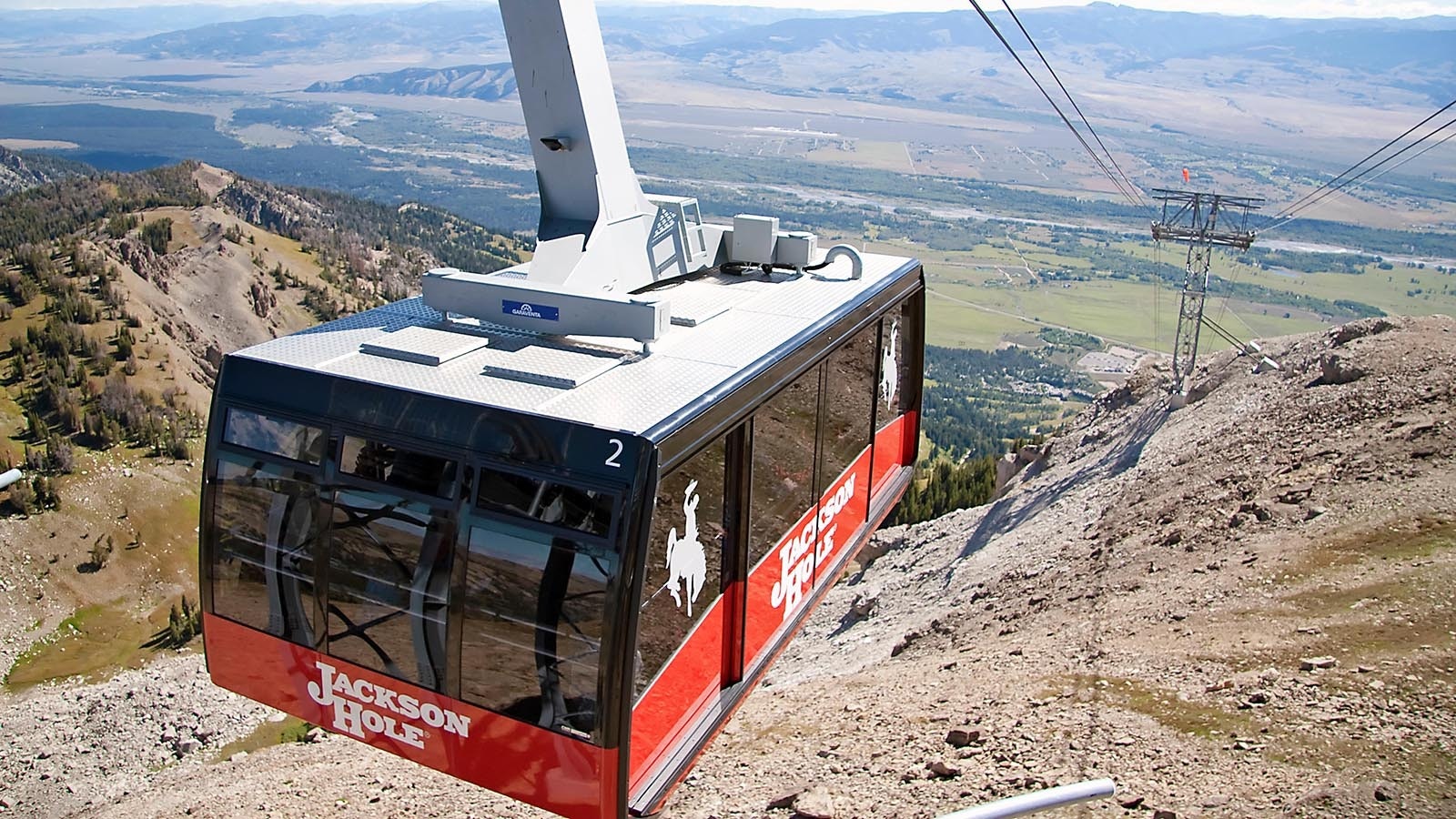On June 11, former U.S. Sen. Alan Simpson will give the eulogy for his lifelong friend Norman Mineta at a church in Washington, D.C.
The story of the friendship between Simpson and Mineta was not entirely typical.
The young boys met as Boy Scouts in rural Wyoming in the 1940s, but both went on to have successful careers in congressional politics on opposite sides of the aisle — Simpson as a Republican from Wyoming, Mineta as a Democrat from California.
The two men nurtured their friendship for nearly eight decades despite ideological differences, a rarity in this time of political partisanship.
What really sets their friendship apart, however, is where they met.
Simpson was born and raised as the son of a man who would later serve as the governor of Wyoming, while Mineta’s family was imprisoned at the Heart Mountain Relocation Camp near Simpson’s hometown of Cody – simply because of race.
“Oldest Friend”
When Simpson was notified of the death of his friend on May 3, he told Cowboy State Daily, he took the news hard.
“It was the oldest friendship I had,” he said. “We were 12-year-old boys, and that was a tough one. I went out there to the camp and howled into the moon.”
The Heart Mountain Relocation Camp, located between Cody and Powell, was one of 10 internment camps that housed 120,000 Japanese Americans during World War II. The camps were created as a result of President Franklin D. Roosevelt’s Executive Order 9066, which authorized the incarceration of any American of Japanese descent in an effort to protect the country against “espionage.”
Two-thirds of those incarcerated were U.S. citizens, born and raised in the United States.
“It was the first time in our history when we had taken American citizens just because of their race,” Simpson said. “Don’t forget, we were at war with the Germans – but we couldn’t tell who they were. And we were at war with the Italians – but we couldn’t tell who they were. But we could sure as hell know who the Japanese-Americans were. And they came to get ‘em.
“They were put there by war hysteria,” Simpson continued, “and a failure of leadership. Franklin Delano Roosevelt signed the order to take them in and (give them) alien status… and the Supreme Court of the United States, it went right up there. And in a 6-3 decision, they said it was really important to do it.”
“Went Up In Weeks”
The camp in northwest Wyoming sprang up nearly overnight once word spread of the attack on Pearl Harbor by the Japanese on Dec. 7, 1941.
“The very day of Dec. 7, they came to (Mineta’s) home,” Simpson said. “The federal authorities came to Norm’s home and began the process to take them to Heart Mountain. They were taken to the racetrack at Santa Anita (California) and put in the stalls temporarily until the train could come for them and take them directly to the Heart Mountain Relocation Center at Heart Mountain, which was nothing but a dirt road between Powell and Cody.
“And it went up in weeks,” he continued. “They could build, I think, one barrack every two days or something like that – and then 11,000 people were out there. It became the biggest city in Wyoming.”
Simpson recalled that while the camp was active, the Japanese-Americans who were captives there lived their lives as normally as possible.
“Boys would go down to the river and swim,” Simpson said. “And Norm said the guards wouldn’t even bother them. ‘That’s just those boys counting magpies down on the river.’
“They had a football team, the Heart Mountain Eagles, and boy, nobody would play them,” he continued. “They had a scrimmage and they beat Powell and Cody by 45 points. And they had their own dances, and their graduations, and all the things that went with it.”
Boy Scouts
The activity that brought the two young boys from different cultures together, though, was the Boy Scouts.
“People didn’t know that there were three Boy Scout troops out there,” he said. “And so they invited the local Powell and Cody troops to come out – and some of them wouldn’t do it.”
Citing racial prejudice on the part of some of the townspeople, Simpson said that some of the local troops wouldn’t acknowledge the Scouts at Heart Mountain.
“But we had a Scoutmaster, Glenn Livingston, and he said, ‘We’re gonna go out there, and check with your parents, if anybody doesn’t want you to go there, or your parents don’t allow that, you let me know.’ And there was only one parent that said, ‘No, don’t go out there.’
“So we went out there – Troop number 50 – and we tied knots and did all those things you do when you’re a Scout,” he continued. “And that’s when I met (Mineta).”
Teamed-Up
One of Simpson’s fondest memories of that time was when he and Mineta got back at a bully who had been terrorizing some of the other Scouts.
“It was raining out there,” he recalled, “and we dug a little trench which led right into his tent. And as the rain came, we were able to direct the scourge right into his tent. Norm said that I ‘cackled.’ And I said, ‘I didn’t cackle, I laughed!’ And he said, ‘No, no, you cackled.’”
Despite the obstacles faced by his family during World War II, Mineta found his place in politics in his native San Jose, California. When he was elected Mayor in 1971, Simpson said he reached out to his childhood friend.
“I saw that he was elected mayor of San Jose, so I wrote him a note,” he said. “I said, ‘You remember the fat kid from the scout troop in Cody? I just want to congratulate you on being anointed Mayor of San Jose.’ And he wrote me back and said, ‘Oh, I remember.’ And then we went on from there.”
Back Together
Mineta was elected to represent California in the U.S. House of Representatives in 1974 and shortly after, the two men were reunited in Washington, D.C.
“When I got elected (to the Senate in 1978), he called me and he said, ‘Boy, this is great. We’ll both be in Congress together,’” he said. “I said, ‘Well, we will. It’ll be great for the country, and for us.’ And so the minute we got to Washington we looked each other up.”
Both men had successful careers in national politics. Simpson served for 18 years as a senator from Wyoming and as the Senate Minority Whip from 1985-95. Mineta was named Secretary of Commerce under President Bill Clinton, then Secretary of Transportation under President George W. Bush. He was the first person of East Asian descent to serve as a U.S. Cabinet secretary.
Reparations Bill
Simpson recalled with pride the successful effort by both men to make reparations for the wrongs done to Mineta’s family and the other families who were incarcerated during the war.
“We worked together on a reparations bill, which George Herbert Walker (Bush) signed,” he said, referring to the Civil Liberties Act of 1988, which granted 82,219 surviving internees $20,000 in compensation.
The legislation stated that government actions had been based on “race prejudice, war hysteria, and a failure of political leadership” rather than legitimate security reasons.
“There were 110,000 of them who lost their rights as citizens,” Simpson said. “(Mineta) passed it in the House, and I took it over in the Senate. And I got a lot of flack – they said, ‘Well, who’s next? The Indians? The blacks?’
“And so I just said, ‘Well, you know, I was there and you weren’t. And I saw the barbed wire and the guard towers and the guys at the top with guns and searchlights all aimed inside – and so I don’t really need any crap out of you,’” he added.
The lifelong friendship of Norm Mineta and Al Simpson has been memorialized at the Heart Mountain Interpretive Center, which stands on the grounds of the camp that imprisoned Mineta’s family 80 years ago.
The Mineta-Simpson Institute, which was unveiled in December of 2020, is meant to be “a dedicated retreat space at the center, a home for workshops and programming specifically designed to foster empathy, courage, and cooperation in the next generation of leaders,” according to the Center’s webpage.





